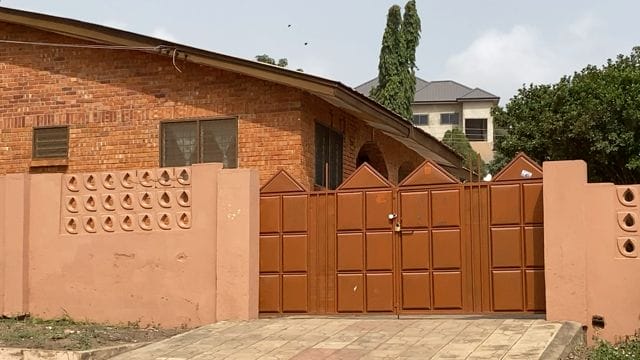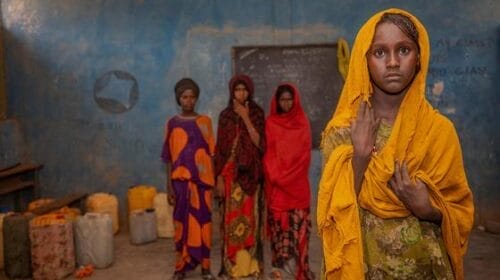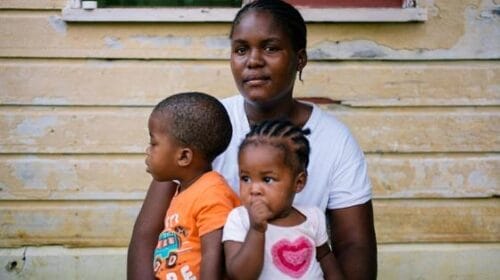Anxiety grips LGBTQ+ people in Ghana after office shutdown

– –
Many LGBTQ+ persons in Ghana are now living in fear after police raided their community center in the capital, Accra to shut it down.
On Wednesday police stormed the office space which is within a residential community to lock it up.
The shutdown was carried out reportedly on the orders of the owner of the facility who gave it out to leaders of the LGBTQ+ last year for rent.
For weeks now there has been a huge public uproar over the opening of the office space which was backed by the European Union and foreign diplomats.
A cross-section of Ghanaians called for the closure of the office space which was meant to be a meeting place for members of the LGBTQ community in Ghana.
– –
They complain of rights abuses, threats against their lives for their sexual orientation.
For many Ghanaians however, the sexual orientation of LGBTQ+ persons and related activities are alien to the Ghanaian culture and beliefs.
LGBTQ+ persons urge calm
Shortly after the shutdown of the office, the LGBT+ Rights Ghana said in a statement on twitter that “While this unfortunate incident has happened, we wish to encourage all our members, and queer Ghanaians to stay calm. Do not panic. We will triumph.”
While this unfortunate incident has happened, we wish to encourage all our members, and queer Ghanaians to stay calm. Do not panic.
We will triumph.
The police may have raided our office, and closed it down but the real office, is in our hearts, and minds.#LETITBEKNOWN pic.twitter.com/dyYktKsa7x— LGBT+ Rights Ghana (@LGBTRightsGhana) February 24, 2021
But members of the community are now living in fear, worried they would be identified and targeted.
– –
The LGBT+ Rights Ghana earlier also said is members “no longer have access to our safe space and our safety is being threatened.
We call on all human rights organizations, and allies to speak out against these attacks and hate crimes we are being subjected to.”
At this moment, we no longer have access to our safe space and our safety is being threatened. We call on all human rights organizations, and allies to speak out against these attacks and hate crimes we are being subjected to. #LetItBeKnown.#LGBTRightsInGhana pic.twitter.com/a05RjqNBXz
— LGBT+ Rights Ghana (@LGBTRightsGhana) February 24, 2021
Human rights group criticize office shutdown
But Amnesty International has condemned the police for the invasion of the safe space for LGBT Rights Ghana.
The Acting Country Director for Ghana, Frank Doyi told local news outlet JOY FM that “The circumstance under which the facility was invaded is what we consider to be a clear violation of the very laws that we all seek to uphold.”
He adds that “The question we like to ask again is whether or not the individuals who were found in that particular facility were seen engaging in any act, if they were not then clearly it’s an issue of the security agencies engaging in an act that is not supported by our laws.”
“When the rights of individuals are clearly violated, then that becomes a serious issue of concern.”
Anti-gay rights activists and religious bodies have all called on the government to declare its stance on LGBTQ+ in the country.
Ghana’s laws on human rights
Ghana’s Constitution drafted in 1992 guarantees human rights to all persons.
The country is required by the UN, other international instruments and obligations, as well as its 1992 Constitution to protect the rights of all citizens in Ghana.
Ghana has committed to provide Equal Protection of the Law from violence and discrimination to all persons including LGBTI people under the United Nations Universal Periodic Review mechanism.
The countries laws however do not recognize same-sex unions and sexual relationships between LGBTI persons.
A thorny issue
Recognizing the rights of Lesbian, gay, bisexual, transgender and intersex (LGBTI) persons is a thorny issue in most African countries.
Only a handful of countries on the continent are willing to discuss and recognize the rights of such persons.
Most Africans consider the sexual orientation of such persons immoral, absurd and an affront to their culture and religion. They are always apprehensive when the issue of homosexual rights come up.
Ghana is one of the countries that is struggling to settle the issue of gay rights once and for all.
In 2018 a new survey conducted showed that Ghanaians are more apprehensive about the perceived negative consequences of LGBTI issues than surge in crime rates.
They also will prefer to live in poverty, become jobless and have poor infrastructure than recognize the rights of gays.
The survey was conducted by African Centre For International Law and Accountability (ACILA).
Ghanaians prefer to live in poverty than recognize gay rights
Source: Africafeeds.com



